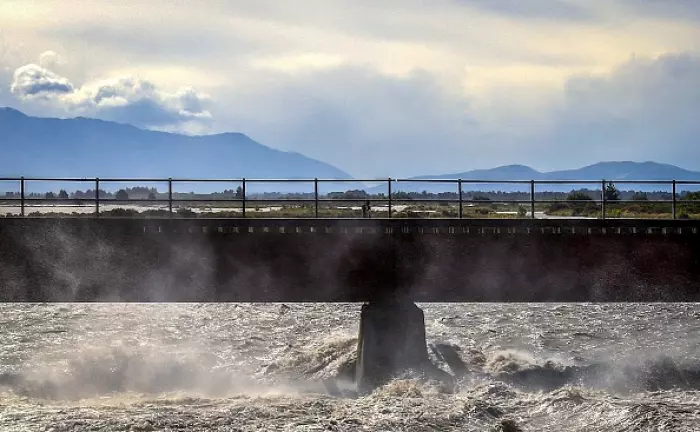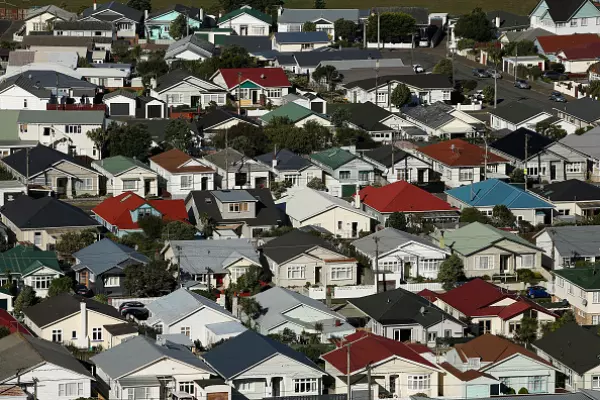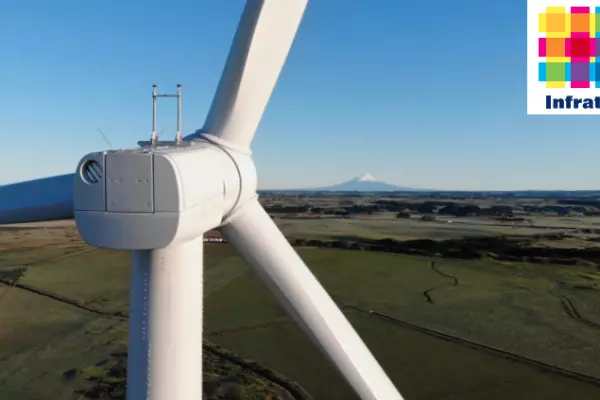The Reserve Bank tried to bury its own research that found climate change is not a threat to financial stability.
That research contradicts many statements by Reserve Bank of New Zealand (RBNZ) governor Adrian Orr that climate change is an existential threat to the economy and that the central bank needs to be at the centre of New Zealand's climate change response.
For example, Orr said in a speech last month that "the financial stability risks associated with climate change are significant, necessitating an urgent and collaborative response".
The RBNZ has a section of its website dedicated to climate change on which it says: "Climate change poses a direct challenge to financial stability."
In this, Orr is not alone. Central banks around the world are expressing concerns about the impact of climate change on financial stability, and courting controversy in doing so.
The 2018 paper said: "Our preliminary assessment is that the risks associated with climate change should not, in and of themselves, create a significant issue for the soundness and efficiency of the financial system."
Former RBNZ official Ian Harrison discovered the efforts to downplay the 2018 paper in the course of researching the likely impact of climate change on the financial system.
He reached similar conclusions to the RBNZ's 2018 paper.
The RBNZ's role on climate change "should be to keep a watching brief and to hose down uninformed, inflammatory, catastrophist stories about financial system risk, not to create them", Harrison said.
The first request
Bryce Wilkinson at the NZ Initiative confirmed he had requested copies on Oct 29 last year of all the research the RBNZ had done to back such assertions, but the 2018 paper wasn't included in the material he was provided with.
Wilkinson had attended a speech Orr gave the previous day to the Pacific Climate Change Conference and asked for a copy of "what the bank regards as the best evidence … in support of your conclusion that 'climate change is a key risk to financial stability'. (I have looked at the reference in footnote four of your speech but did not spot anything in that material which answered the question)".
Wilkinson told BusinessDesk: "I did not think to ask for its best evidence contradicting his conclusion," but said of what he was sent, the only "remotely supportive" evidence was a 197-page paper by the US Commodity Futures Trading Commission.
"It translates speculative 'coulds' and 'mays' in the body of the report into unqualified assertions of certainty in the executive summary," Wilkinson said.
Payment, please
On Dec 1 last year, RBNZ senior official Toby Fiennes responded to a request under the Official Information Act (OIA) made on Nov 3 by an unknown person for copies of any research on the cost of global warming undertaken by the central bank in the last 10 years.
Fiennes said in a letter that the RBNZ had identified three pieces of research and asked the requester to pay $114 "due to the large time period set in the request and the frequency of requests from your organisation over the last month".
The three papers Fiennes identified were a case study on drought and monetary policy in NZ, a survey of literature regarding the implications of climate change for monetary policy, and a paper on the potential implications of climate change for the financial system.
Harrison noted: "As the documents had already been identified, the 2018 paper would have been fresh in their minds and the cost of compliance should have been trivial. It seems obvious that the real reason the discussion paper was withheld was that it did not support the governor's claim that climate change presented a systemic risk. Indeed, it more or less said that it didn't," he said.
A deterrent
"The bank was betting that a charge of $114 would put off the requester, who would not have been aware of the significance of the paper and may not have been prepared to pay a charge for an existing document of clear public interest on principle."
Harrison noted that the cost of Fiennes's time in penning the letter, which spanned more than two pages, would have been considerably more than $114.
On Feb 12, another former RBNZ official, Michael Reddell, alerted by this piece of correspondence published on the RBNZ website, requested a copy of the third paper under the OIA.
His request was declined on March 9 on the grounds that RBNZ was about to make the paper publicly available anyway.
The March 9 response, signed by ministerial and OIA adviser Tobias Vandenberg, noted that the unknown requester hadn't paid the $114 fee demanded.
"The Bank believes that requesters should bear some of the costs when requests are made for large amounts of information, where a response is particularly complex, or where individuals or organisations make frequent requests," Vandenberg said in the letter.
Threatening an ombudsman complaint
He said the RBNZ would provide Reddell with the paper if he paid $38 since he only wanted one of the three papers identified, but "the Bank expects the information will soon be publicly available and therefore refuses your request".
The paper had not been published by June 15, more than three months later, when Reddell again wrote to RBNZ asking for a specific date on which it would be published or released to him.
If the RBNZ did not release the paper, Reddell said he would complain to the ombudsman "about what appears to be deliberate obstruction".
Finally, on July 7, Vandenberg emailed Reddell to tell him the paper had been published on the RBNZ's website.
For the record, the OIA requires "the information shall be made available unless there is good reason for withholding it" and details the circumstances and grounds for withholding information, including whether it would prejudice NZ's security or international relations or damage the economy, none of which could reasonably be said to apply to the 2018 paper.
The OIA also stipulates a response "not later than 20 working days after the day on which the request is received". Disclosing the 2018 paper took more than eight months.
Not climate-science denial
To be clear, the 2018 paper is definitely not a case of denying climate science, and neither is Harrison's paper because both treat the science as a given.
The RBNZ paper, which was written by Kevin Hoskin and dated July 18, 2018, noted that, based on current valuations, up to $22 billion of residential property could be materially exposed to sea-level rise.
"Climate change presents a range of challenges, which to varying degrees, may impact on the economy and on financial sector participants," it said.
NZ has a high level of insurance penetration, so insurers may be first in line to bear losses.
"However, annual contracting should help insurers manage their long-run exposure to climate risks. Insurance is expected to remain broadly available, albeit re-priced for climate risks," it said.
Banks and other lenders could also be exposed if they over-value the security backing their lending or if increased insurance costs lead to an increase in borrower distress or under-insurance, it said.
"The scale of the exposures should be manageable, but may be more significant if other major risks crystallise (eg, significant price correction in the housing market)," it said.
Farmers not a problem
Nor should lending to farmers become a problem generally, although individual farms or regions may be negatively impacted.
"Climate change is not expected to pose a systemic risk to the banking sector through agricultural lending."
Harrison's report reaches similar conclusions.
"As the physical effects of climate change are slow-moving and relatively predictable over relevant time horizons, we should expect the financial systems to adapt to this changing world and readily accommodate the impacts of climate events," it said.
"Most of the claims that floods, storms, fires and sea-level change will generate system-level risks are not based on serious analysis and proper stress tests by overseas banks are showing that losses will be very low," it said.
Orr's claims to the contrary are an overreaction and "motivated more by attention-seeking than the science and sound economics", said Harrison.
The RBNZ "deliberately hid their report for months and misled people seeking it under the OIA to promote its new, more catastrophist narrative", he claims.
Looking at the timeline from the first request, and the long delay in publishing the 2018 paper, two years after it was written and only under threat of a complaint to the ombudsman, and its relatively obscure positioning on RBNZ's website, it's difficult to reach any other conclusion.















